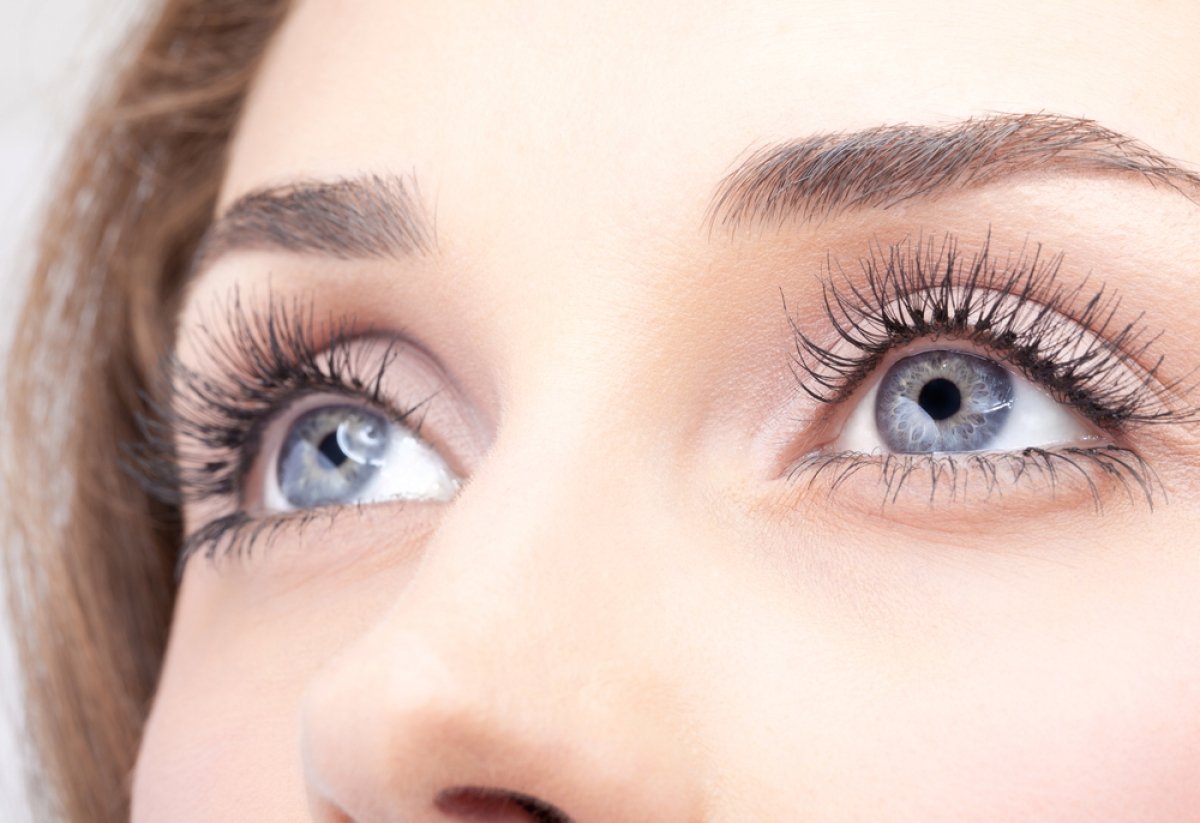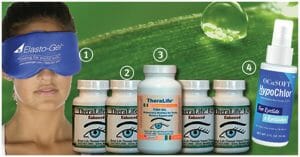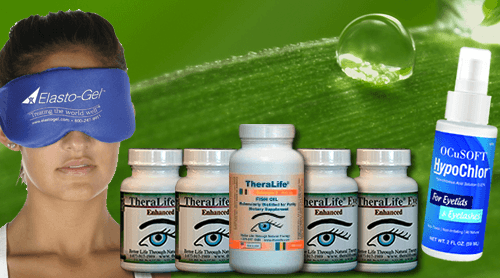To effectively manage chronic blepharitis, TheraLife’s products offer sustainable, natural solutions that benefit customers by addressing the root causes of eye discomfort. TheraLife products are designed to enhance eye health through a combination of natural ingredients, promoting inflammation reduction and improved tear production. Their omega-3 supplements are particularly beneficial, as they can decrease inflammation by up to 36%. Additionally, TheraLife emphasizes the importance of a diet rich in leafy greens, berries, and nuts, which provide anti-inflammatory benefits.
For eyelid hygiene, TheraLife suggests the use of warm compresses and massages to melt blockages and enhance meibomian gland function. They also integrate mindfulness exercises to help reduce stress, further supporting tear production. TheraLife’s holistic approach not only helps manage blepharitis but also educates customers on maintaining long-term eye health naturally.
By exploring TheraLife’s resources, customers can deepen their understanding of managing blepharitis through natural methods, ensuring sustainable relief and improved quality of life.
Best Natural Treatment For Blepharitis – TheraLife
Add To CartKey Takeaways
- Warm compress therapy improves tear film stability and reduces eyelid inflammation.
- Omega-3 fatty acids in the diet help decrease ocular inflammation and support eye health.
- Mindful breathing exercises reduce stress, which positively impacts inflammatory conditions like blepharitis.
- Herbal remedies, such as chamomile and calendula, offer antimicrobial effects and promote eyelid healing.
- Gentle eye care practices, like eyelid massage and hydration, enhance meibomian gland function and relieve symptoms.
Understanding the Causes and Symptoms of Blepharitis
While it might seem like a minor inconvenience, understanding the causes and symptoms of blepharitis is crucial for effective management of this common eyelid inflammation.
Blepharitis types, including anterior and posterior, have distinct etiologies. Anterior blepharitis is often associated with bacterial infection or seborrheic dermatitis affecting eyelid margins. In contrast, posterior blepharitis involves meibomian gland dysfunction leading to altered tear film composition.
Clinically, you may experience symptoms like eyelid redness, swelling, crusting, or a gritty sensation, which can greatly impact quality of life.
Addressing symptom relief requires targeted strategies. Regular eyelid hygiene, using warm compresses, and eyelid scrubs can reduce symptom severity.
Recognizing specific blepharitis types guarantees appropriate treatment pathways, potentially incorporating antibiotic or anti-inflammatory therapies, to achieve effective symptom relief. One approach to managing blepharitis effectively is through the TheraLife treatment, which offers an all-natural solution to alleviate symptoms and improve eye health.
The Role of Diet in Managing Blepharitis
Although blepharitis is primarily an ocular condition, emerging research suggests that diet may play a significant role in its management.
Integrating dietary supplements and anti-inflammatory foods into your regimen could help alleviate symptoms. Clinical evidence points to omega-3 fatty acids, found in fish oil, as effective in reducing inflammation.
Consider the following dietary strategies:
- Omega-3 Fatty Acids: Incorporate fish oil supplements or flaxseed oil into your diet to potentially reduce ocular inflammation.
- Anti-Inflammatory Foods: Consume foods rich in antioxidants such as leafy greens, berries, and nuts to combat inflammation.
- Hydration: Maintain adequate hydration to support overall ocular health and assist in managing blepharitis symptoms.
For enhanced results, consider TheraLife Omega-3, which is molecularly distilled to ensure purity and potency, thereby effectively reducing impurities and enhancing therapeutic outcomes.
These strategies, backed by evidence, may offer sustainable relief and enhance your approach to managing blepharitis.
Herbal Remedies for Soothing Inflammation
Expanding beyond dietary strategies, herbal remedies provide a promising avenue for soothing inflammation associated with blepharitis. Utilizing herbal infusions and anti-inflammatory extracts can offer clinical benefits by targeting the underlying inflammation. Chamomile, known for its soothing properties, can be used as an infusion to reduce eyelid swelling. Calendula, with its anti-inflammatory extracts, aids in minimizing irritation and promoting healing. Lavender oil, another potent extract, offers antimicrobial effects, essential in managing blepharitis. Incorporating these herbal remedies into your daily regimen could offer sustainable relief from blepharitis symptoms, enhancing your eye health without relying solely on pharmaceuticals. Additionally, warm compress therapy is highly recommended for increasing tear film stability and reducing inflammation, making it a crucial part of a comprehensive treatment plan.
| Herb | Benefits | Application Method |
|---|---|---|
| Chamomile | Reduces swelling | Infusion |
| Calendula | Minimizes irritation | Extract |
| Lavender | Provides antimicrobial effects | Oil |
Lifestyle Adjustments to Promote Eye Health
Adopting strategic lifestyle adjustments can considerably enhance eye health and mitigate blepharitis symptoms.
Prioritizing sleep hygiene is essential, as inadequate rest can exacerbate ocular irritation. Make sure you establish a consistent sleep schedule to support ideal tear production and eyelid function.
Hydration importance can’t be overstated, as systemic dehydration often leads to decreased tear secretion, impairing ocular surface integrity. Drink ample water throughout the day to maintain proper hydration levels.
To promote eye health, consider the following:
- Sleep Hygiene: Maintain a regular sleep pattern to improve ocular health.
- Hydration: Consume sufficient fluids daily to support tear production.
- Dietary Considerations: Incorporate omega-3 fatty acids and antioxidants to reduce inflammation and support eye function.
Incorporating supplements like TheraLife® Eye capsules can aid in sustainable tear restoration for those suffering from blepharitis symptoms. Implementing these strategies can sustainably alleviate blepharitis symptoms.
Gentle Eye Care Practices for Daily Relief
When managing blepharitis, incorporating gentle eye care practices can provide considerable daily relief.
Begin with a structured routine that includes techniques like eye massage. To perform an effective eye massage, use your fingertips to gently apply pressure along the eyelid margin. This action promotes meibomian gland function, enhancing lipid layer secretion. Evidence suggests that this practice reduces inflammation and irritation.
Integrating soothing oils can also contribute to ocular comfort. Choose oils with anti-inflammatory properties, such as coconut or castor oil. Apply a small amount to a clean cotton swab and carefully dab along the eyelid. This approach helps maintain moisture and supports the skin barrier. For additional relief, consider using a warm compress regularly to help melt blockages and improve meibomian gland function.
Adopting these strategies can considerably improve symptoms, offering a clinical, evidence-based pathway to sustainable relief.
The Benefits of Warm Compresses and Lid Hygiene
While managing blepharitis, incorporating warm compresses and maintaining lid hygiene are essential components of effective treatment.
Applying warm compresses to your eyelids helps to liquefy meibomian gland secretions, facilitating the reduction of inflammation and alleviating symptoms. Consistent lid hygiene is vital in removing debris and bacteria, reducing the risk of exacerbation.
Here’s how you can effectively implement these treatments:
- Warm Compresses: Use a clean, damp cloth, warmed to a comfortable temperature, placing it over your closed eyelids for 5-10 minutes. This aids in unclogging the glands.
- Lid Hygiene: Gently cleanse your eyelid margins with a diluted baby shampoo solution or commercial eyelid scrub pads daily.
- Routine Compliance: Consistency is key. Adhering to a daily regimen enhances symptom management and promotes ocular health.
Incorporating Omega-3 fatty acids into your diet can offer anti-inflammatory benefits, further supporting the management of blepharitis and improving overall eye health.
Integrating Mindfulness and Stress Reduction Techniques
In addition to the physical treatments for blepharitis, incorporating mindfulness and stress reduction can play a significant role in managing this condition. You can start with mindful breathing, a technique proven to enhance parasympathetic activity, thereby reducing inflammation and promoting ocular health. By engaging in mindful breathing exercises, you activate a relaxation response, which is vital for stress management. Stress exacerbates inflammatory conditions like blepharitis, so managing it is essential. Clinical studies indicate that regular mindfulness practices lead to significant reductions in stress markers such as cortisol. Consistent mindfulness practices can improve tear production, which is crucial for maintaining eye health and preventing dry eye conditions.
Best Natural Treatment For Blepharitis – TheraLife
Add To CartFrequently Asked Questions
Can Environmental Factors Contribute to Chronic Blepharitis?
Yes, environmental factors can contribute to chronic blepharitis. Pollution effects irritate the eyelids, exacerbating inflammation.
High humidity levels can also influence this condition by creating an environment conducive to bacterial growth and oil gland dysfunction.
Studies suggest that minimizing exposure to pollutants and maintaining ideal indoor humidity are essential in managing symptoms.
Clinical evidence supports these strategies, indicating they effectively reduce flare-ups and improve eye health in patients with chronic blepharitis.
Are There Any Alternative Therapies for Blepharitis Relief?
Exploring alternative therapies for blepharitis relief is like opening a new toolbox.
Herbal remedies, such as tea tree oil, have shown potential in managing symptoms by reducing inflammation and bacterial load.
Acupuncture therapy can enhance circulation and modulate immune responses, providing relief.
Evidence suggests these approaches, when applied correctly, offer benefits.
Always consult a healthcare professional to ascertain these methods are suitable and effectively integrated into your treatment plan.
What Role Do Allergies Play in Chronic Blepharitis?
Allergies can considerably contribute to chronic blepharitis by acting as persistent allergy triggers that exacerbate symptoms.
When your body’s immune response detects these allergens, it may lead to inflammation of the eyelids. This ongoing immune activity can aggravate existing blepharitis, making it more challenging to manage.
Identifying and minimizing exposure to specific allergens is essential in reducing inflammation and achieving sustainable relief from blepharitis symptoms.
Consult a specialist for personalized strategies.
How Does Sleep Quality Affect Blepharitis Symptoms?
Improving your sleep quality greatly impacts blepharitis symptoms. Poor sleep can exacerbate inflammation and eye discomfort.
By practicing good sleep hygiene, like maintaining a consistent sleep schedule and creating a restful environment, you reduce stress, which contributes to symptom management.
Stress management techniques, such as relaxation exercises before bed, also support better sleep and mitigate blepharitis flare-ups.
Clinical evidence suggests that prioritizing these practices enhances long-term symptom relief.
Can Certain Medications Exacerbate Blepharitis?
When it comes to blepharitis, some medications might add fuel to the fire.
Certain medication types, like isotretinoin and antihistamines, can exacerbate symptoms due to their drying effects.
It’s essential to take into account treatment interactions, as they can worsen ocular surface conditions.
Consulting with a healthcare provider guarantees you’re not inadvertently aggravating your blepharitis.
Their clinical insights will help you navigate this issue with an evidence-based approach, optimizing your treatment plan.
Best Natural Treatment For Blepharitis – TheraLife
Add To Cart
Conclusion
Embarking on the journey to manage chronic blepharitis, it’s essential to view TheraLife’s products as vital tools in your eye care routine. TheraLife offers a range of supplements and solutions tailored to reduce inflammation and provide sustainable relief for blepharitis. By integrating TheraLife products with dietary adjustments, herbal remedies, and lifestyle changes, you create an environment where inflammation finds it difficult to thrive. These products not only aid in achieving gentle eye care but also enhance the benefits of warm compresses and lid hygiene for daily comfort. Furthermore, TheraLife’s emphasis on mindfulness and stress reduction techniques supports holistic eye health, presenting a balanced approach that is both effective and sustainable for those struggling with blepharitis.





